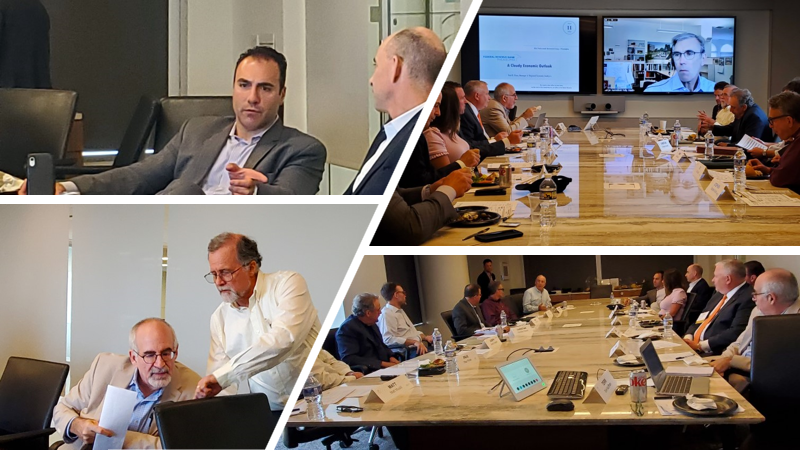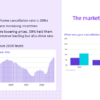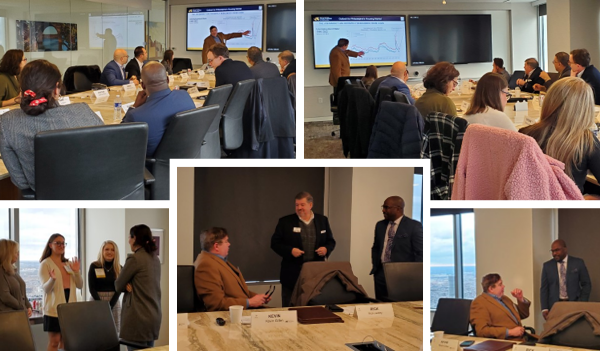July 2022 Philadelphia Mastermind Group Key Take Aways!
• There continues to be uncertainty in the markets as the pandemic is not over, the war in Ukraine remains an issue and inflation continues, which makes it difficult to do a full economic outlook. (Paul Flora – Federal Reserve Bank of Philadelphia)
• 2020 was more of an economic shock followed by smaller shocks than a recession. While many sectors have mostly recovered, employment in leisure and hospitality has not returned and may remain lower even when it is back. (Paul Flora – Federal Reserve Bank of Philadelphia)
• Economic data gets revised within a year or so, and economists are not looking at current data in real time. It makes it difficult to predict when a recession is beginning. Jobs data tends to be over-estimated at the beginning of a recession and under-estimated at the beginning of a recovery. (Paul Flora – Federal Reserve Bank of Philadelphia)
• There were signs the economy was slowing before the pandemic due to a tightening labor force. (Paul Flora – Federal Reserve Bank of Philadelphia)
• Unemployment rates have retreated to where they were near the pre-pandemic levels. Philadelphia MSA lost 523,000 jobs in two months and recovered 458,00K as of May 2022. (Paul Flora – Federal Reserve Bank of Philadelphia)
• There are signs that inflation may have peaked. Core CPI and Core PCE have come down. But gas prices are higher now (adjusted for inflation) than they were in the late 70s and consumers aren’t making adjustments. People are divided and not pulling together as a nation. (Paul Flora – Federal Reserve Bank of Philadelphia)
• Inflation has been caused by supply chain issues, gas prices and more profit taking (some industries may have consolidated too much). Consumer confidence is shaken and though not terrible, it’s going in the wrong direction. (Paul Flora – Federal Reserve Bank of Philadelphia)
• Professional forecasters are less bullish as of Q2 2022. Economists think it will settle down next year, assuming the war in Russia doesn’t take a bad turn or some other unforeseen issue. (Paul Flora – Federal Reserve Bank of Philadelphia)
• The Fed is being very aggressive, worried about the era of Paul Volcker. Some fear they may be too aggressive. (Paul Flora – Federal Reserve Bank of Philadelphia)
• Baby boomers retiring may have had a large impact on labor issues. Retirement had been accelerating for a few years before the pandemic and the pandemic pushed many workers into retirement. There has also been less immigration. (Paul Flora – Federal Reserve Bank of Philadelphia, Paul Fiorilla – Yardi Systems)
• There were a lot of new business formations during the pandemic. Many have not become established businesses. Not clear what role this might have played on the labor market. (Paul Flora – Federal Reserve Bank of Philadelphia, Stephen Mullin – EConsult Solutions)
• Young people are losing out on wisdom and development opportunities from senior co-workers by working remotely. (Paul Flora – Federal Reserve Bank of Philadelphia, Christian Dalzell – Counter Management, Mark Settelen – MJ Settelen Construction, Jim Karmolinski – Kelly Maiello Architects, Bart Mellits – Ballard Spahr, Ed Opall – EisnerAmper)
• Life sciences sector remains strong and requires more people to be in the office. Some retail spaces are being converted to life sciences buildings. (Bart Mellits – Ballard Spahr)
• Material costs are escalating faster than ever before and rising costs are affecting deal flow and has created a need for exclusions and clarifications. (Bart Mellits – Ballard Spahr, Mark Settelen – MJ Settelen Construction)
• Timing has been an issue in regards to delivery of materials. Steel and wood have been better but appliances have been very difficult with some items 1-2 years out. It’s having more of an impact on smaller projects and small details can create big delays in projects due to supply chain issues. (Bart Mellits – Ballard Spahr, Mark Settelen – MJ Settelen Construction, Joseph Viturello – PernaFrederick Commercial Real Estate)
• Multi-family and mixed use are still strong. Things feel a little slower the last few weeks and it doesn’t feel quite as firm. (Christian Dalzell – Counter Management, Christina Lutz – Counter Management)
• Philly is becoming less affordable with renters having trouble finding affordable options. (Christian Dalzell – Counter Management, Christina Lutz – Counter Management)
• Interest rates are slowing down deals. (Ed Opall – EisnerAmper, Joseph England – EisnerAmper)
• Many clients are stressed. Cost changes, time changes, and general uncertainties are a problem. The frenetic pace is new, with clients sometimes asking for a pause followed by asking them to speed up. (Jim Karmolinski – Kelly Maiello Architects, Kathy Babcock – Kelly Maiello Architects)
• The sublease market has been an issue, with additional space available at a lower cost per sq. ft. Real estate has become more about selling services than selling products, and landlords need to create a space that offers something to people. (Joseph Viturello – PernaFrederick Commercial Real Estate, Paul Fiorilla – Yardi Systems)
• Workers compensation claims are sometimes requiring additional audits. (Matt Musilli – Johnson, Kendall & Johnson)






Recent Comments